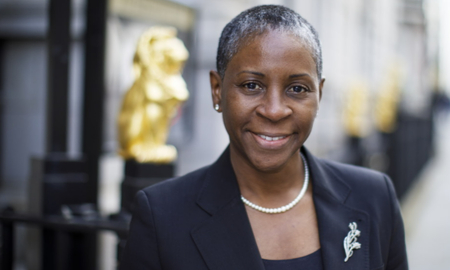Sign up for our free daily newsletter
YOUR PRIVACY - PLEASE READ CAREFULLY DATA PROTECTION STATEMENT
Below we explain how we will communicate with you. We set out how we use your data in our Privacy Policy.
Global City Media, and its associated brands will use the lawful basis of legitimate interests to use
the
contact details you have supplied to contact you regarding our publications, events, training,
reader
research, and other relevant information. We will always give you the option to opt out of our
marketing.
By clicking submit, you confirm that you understand and accept the Terms & Conditions and Privacy Policy
The Law Society of England and Wales has published a diversity and inclusion framework to help the legal industry create faster and lasting change.
The framework has been devised with the help of consultancy Delta Alpha Psi, whose clients include Magic Circle UK law firm Linklaters, as well as the BBC, the NHS and HM Revenue & Customs.
It includes an action plan template, links to additional guidance and resources, and a call for law firms to submit diversity and inclusion case studies so that 'best practice that actually worked' can be shared.
While solicitors from black, Asian and minority ethnic backgrounds represent almost a fifth of all practising lawyers in England and Wales overall, they only make up just over one in 10 lawyers working in private practice. By contrast, nearly a third of sole practitioners are from black, Asian and minority ethnic backgrounds. The Law Society says solicitors often make the move to sole practice because of barriers to progression to senior levels at large law firms.
Stephanie Boyce, the Law Society’s president, said: “From the high street to the Supreme Court, the legal profession must reflect the society it serves. There is often a leap to action on D&I – a sense of urgency to ‘do something,’ with a myriad of advice, schemes and checklists available. This can lead to activity that is reactive to immediate pressures, short lived or not properly resourced or recognised.”
All of that risks effort being out into initiatives that don’t ultimately improve diversity or boost inclusion in the workplace, she said.
Professor Sara Chandler, chair of the Law Society's equality, diversity and inclusion committee, is a judge for the inaugural Women and Diversity in Law Awards. The nominations deadline is on Friday 30 September
The Law Society’s framework is designed is establish purpose, develop a plan and ensure performance on diversity standards across the legal profession. The framework is aimed at large and medium-sized firms, but it outlines strategic guidelines that apply to any sized firm, in-house team or organisation.
Boyce said: “We hope the framework will support workplaces to take a strategic and systematic approach to diversity and inclusion activity to ensure that the change they’re seeking to make is sustainable. This new framework is a roadmap for action that allows workplaces to create lasting change where everyone feels valued, respected, and safe.”
Earlier this month, a Law Society report showed that the number of women lawyers with a practising certificate in England and Wales grew three times faster than men over the past decade, with women now making up more than half of all practising lawyers (53%). However, in the 12 months to July, the number of women partners only increased by 0.3% to 8,390, continuing what the Law Society describes as ‘slow steady growth’.
In the run up to the nominations deadline for the Women and Diversity in Law Awards, The Global Legal Post has been publishing judges' reflections on their careers and how best to promote DE&I in the legal profession:
'I was trying to over-compensate for being different': Baker McKenzie's global marketing director on the importance of inclusion
‘Tiny changes can have a massive butterfly effect’: Clifford Chance's UK inclusion head on her D&I story
‘Everyone’s been excluded': Accenture Legal's global diversity head on the power of empathy
Email your news and story ideas to: [email protected]











